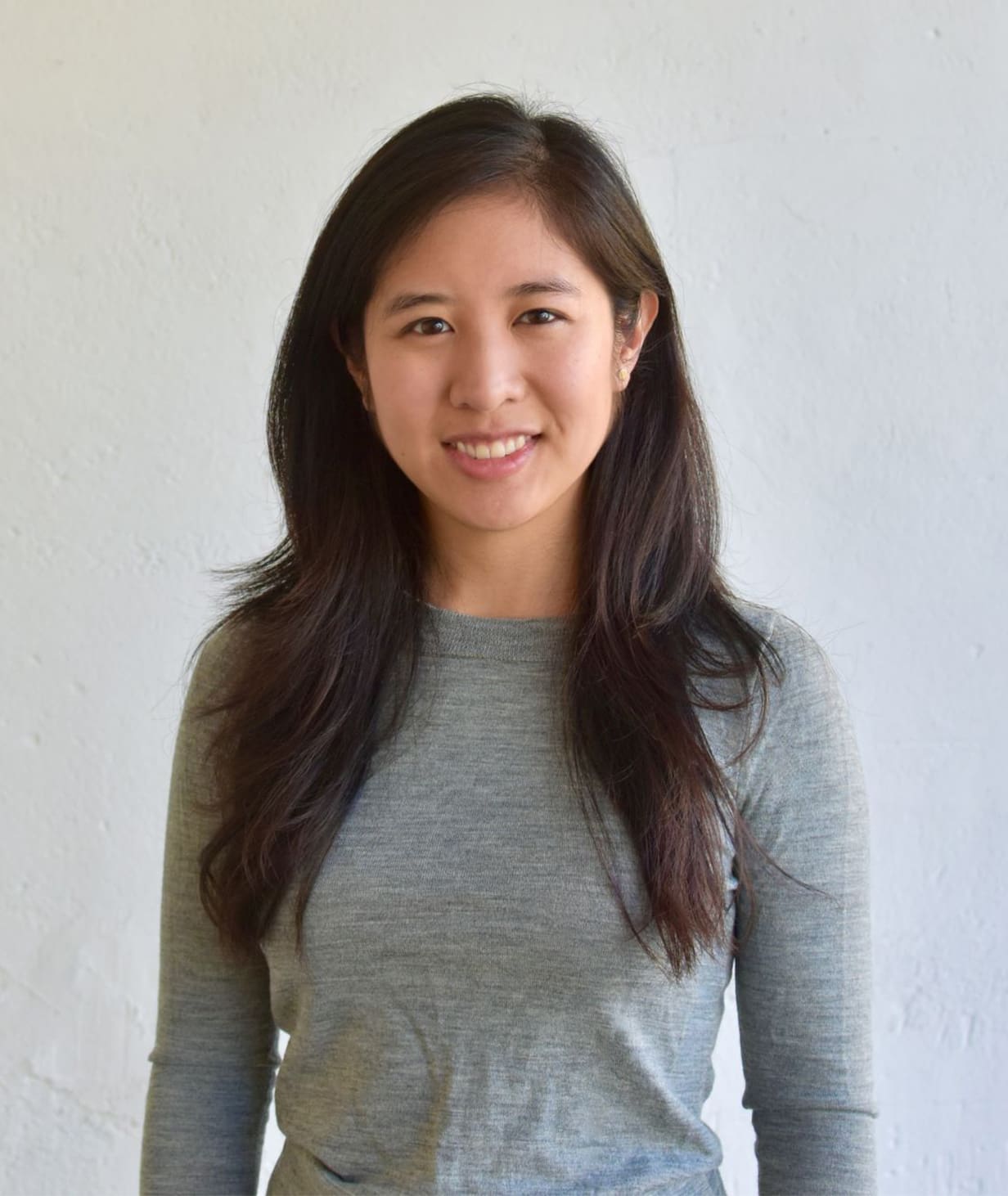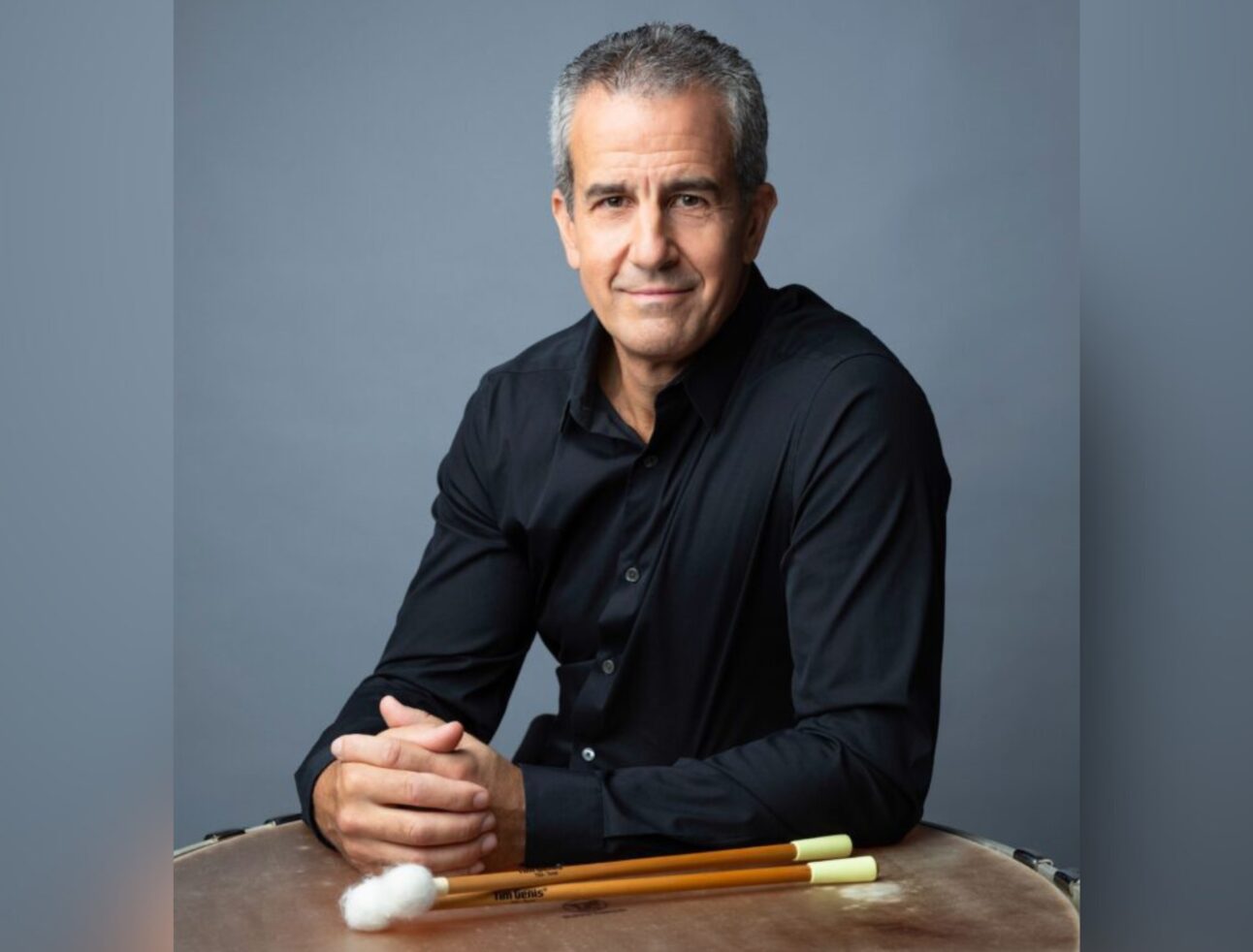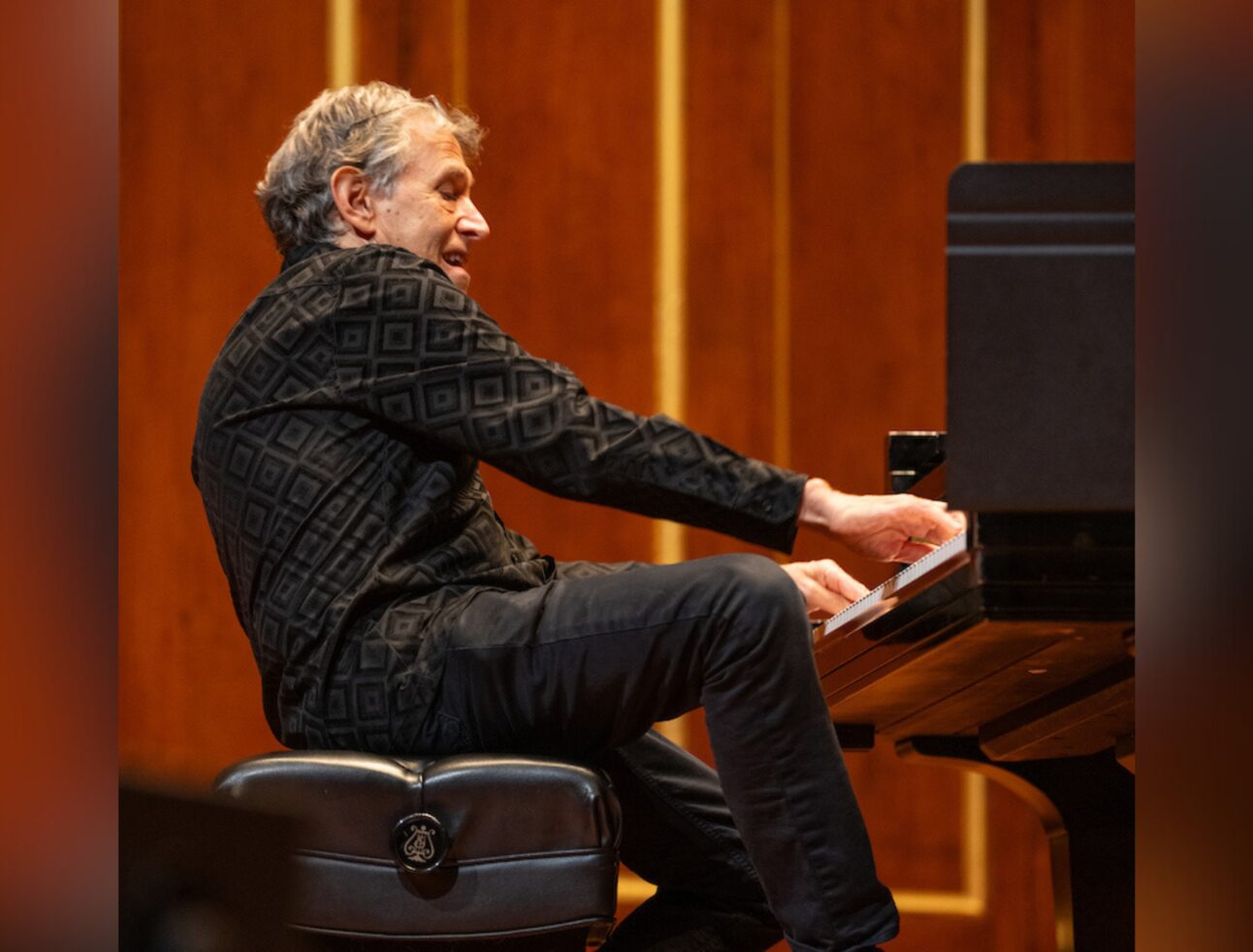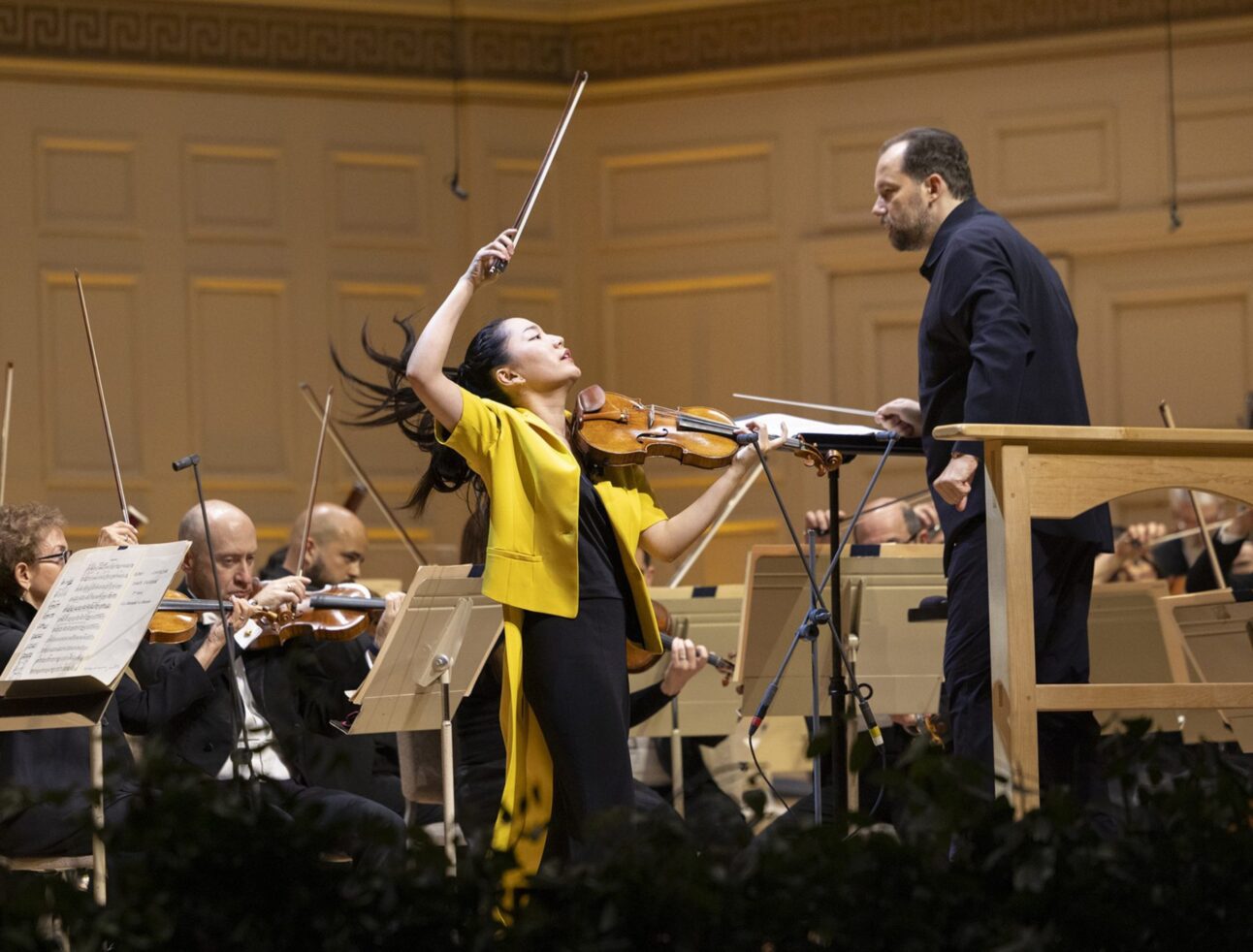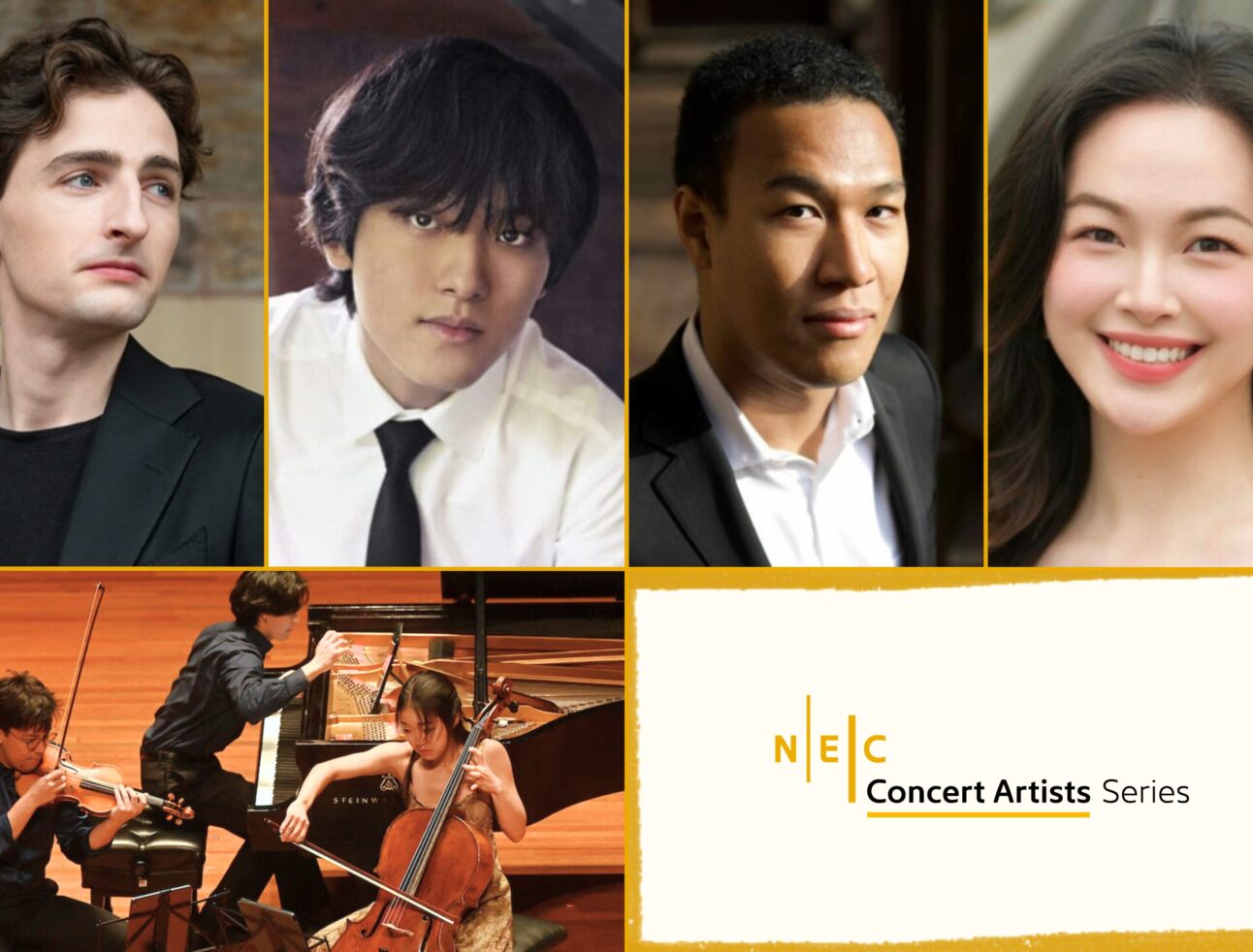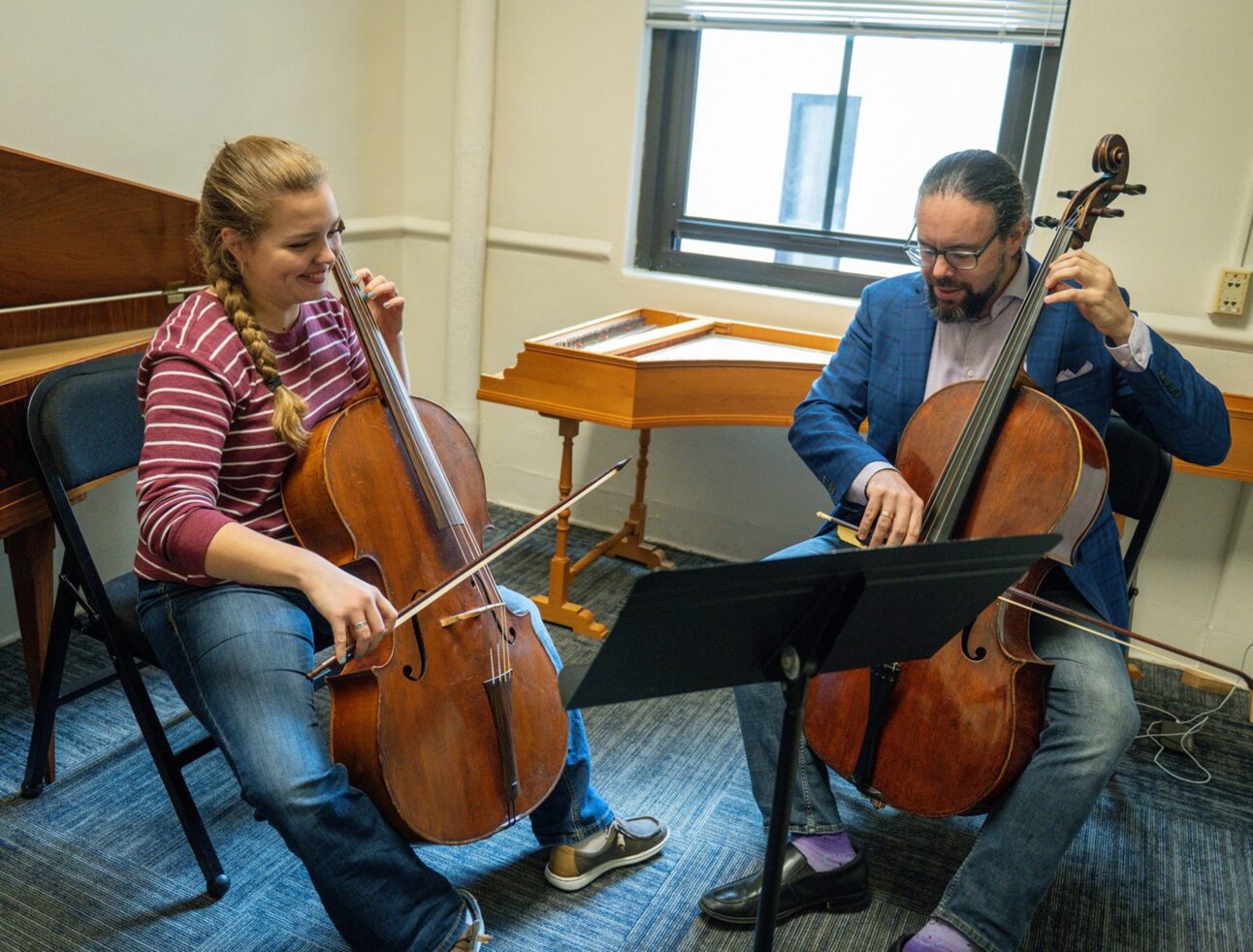“I’m so glad I have my NEC experience to lean on and carry with me into the future.”
Degree: BM in Violin Performance from NEC; BS in Human Factors/Engineering Psychology from Tufts
Current Job: I’m the Design & User Research Lead at Segmed.ai. Segmed is a tech startup that compiles and prepares data for medical artificial intelligence. My role is to design our platform in a way that makes sense to data scientists and medical researchers.
Why did you choose NEC?
When I was a kid studying violin at the Colburn School in Los Angeles, I really looked up to the older students who went on to conservatories. At the same time, I was interested in math, kinesiology, and design. The Tufts/NEC program allowed me to dig into those interests while pursuing my childhood music dreams. Plus, my first-choice studio teacher was at NEC! The program was incredibly difficult, but it was the right choice for me.
What are some of your favorite memories from your time at NEC?
I always loved playing in ensembles on stage at Jordan Hall. I miss the feeling of our collective sound filling the hall. One moment that stands out was our Mahler 10 performance. I also remember my Solfège classmates convincing our teacher to let us sing Bach Chorales in the stairwell, where it was extra echoey.
Share a story about one of your favorite faculty or studio instructors.
One year, my studio teacher started our first performance class saying, “I have 24 of you this year. So that means…” We all instantly knew that each one of us was going to be assigned a Paganini Caprice that we could perform in sequence during a later class. Even though we were working on caprices anyway, the idea of a studio marathon and a deadline gave us extra pressure. It was a great bonding experience. Students practiced in front of each other, shared tips on caprices they’d done before, or commiserated. I’m happy to report that we all survived the “Paganini Party” and ate good food after.
What have you been up to since graduating from NEC?
After graduation, I started working as a user experience designer at a digital media agency in Boston. My favorite part about agency work was the variety of clients—they ranged from fast food to finance to auto services. I found that I especially enjoyed working on the apps and websites for our healthcare clients. My interest in health and wellness led me to the Stanford Design master’s program, where I could focus on design in healthcare and the startup environment. I got to learn about machine learning and data science, which was a helpful foundation for my current job.
Once I started working as a designer full-time, I was worried that I’d lose my connection to music. Fortunately, that isn’t the case! I’ve gotten to play with local groups, friends have asked random music history or theory questions, and coworkers have even requested covers of rock songs. I’m so glad I have my NEC experience to lean on and carry with me into the future.
How have your NEC experiences shaped your artistic approach?
Many lessons from NEC directly apply to user experience design, but here are just a few:
- Look for Inspiration Beyond the Obvious Places: My studio teacher often talked about having musical models. Of course, we’d listen to recordings of our repertoire, but he encouraged us to go to art museums, look at architecture, and feel textures underneath our fingers. Now when I am gathering ideas for a digital design, I’ll consider everything from fashion ads to library systems. I think it helps push the work forward.
- Experiment: Practice sessions involve lots of experimentation and tweaks, like trying a new bowing to get the desired phrasing. With UX design, I try different page formats, styles, and visual cues to see what makes sense. I also gather user feedback make further adjustments.
- Aim Above Audience Expectations: Concertgoers notice when octaves are out of tune or tricky passages get fumbled. As one teacher told me, “The audience doesn’t care if it’s difficult.” The same goes for tech development. Users won’t give designers the benefit of the doubt if a feature was difficult to build—they will just complain that it isn’t working. However, if a designer can go the extra mile and anticipate the user’s needs really well, they will get a happy customer.
